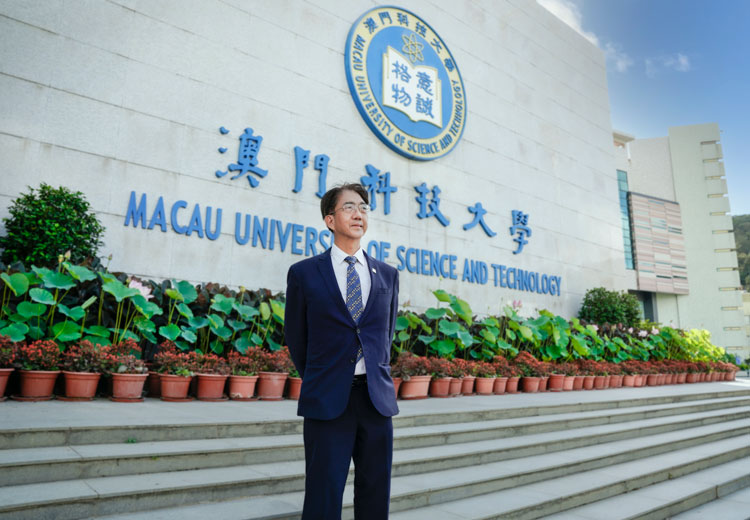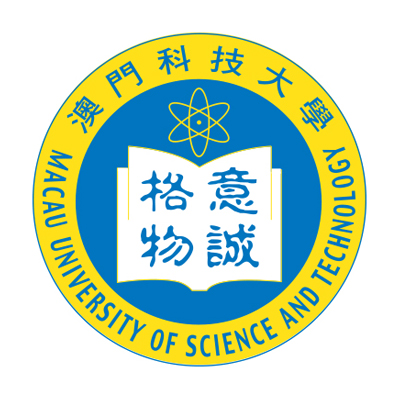Macau University of Science and Technology fuels innovation in environmental science research

Sponsored by

Sponsored by

The Macau University of Science and Technology brings together interdisciplinary research and innovative strategies to bolster global sustainability initiatives
Achieving sustainability may be contingent on global support but regional breakthroughs serve as important catalysts in the pursuit. The Macau University of Science and Technology has long understood the importance of combining the local and the global in its research. Situated on the west coast of the Greater Bay Area, the Macao Special Administrative Region is experiencing rapid development, yet has many regional challenges to overcome, including problems around water management and air quality.
“The world faces a number of sustainability challenges, such as population growth, rampant urbanisation and climate change,” explains Joseph Hun-wei Lee, the university’s president. “Environmental science research is needed now more than ever to tackle these challenges – in the Greater Bay Area and all over the world.”
Established in 2015, the Macao Environmental Research Institute (MERI) demonstrates the university’s efforts in addressing regional and global environmental issues by promoting environmental science research and pioneering sustainable initiatives. The MERI facilitates high-level research programmes for local and international academics in areas such as environmental pollution, risk analysis of the Pearl River estuary and environmental quality standards and risk assessments for Guangdong, Hong Kong and Macao.
“Sustainable development cuts across many fields,” Lee says. “The MERI is concerned with using research to solve problems, whether they are social, economic or environmental.” These could be broad, global challenges – such as tackling the problem of climate change – or smaller-scale public health issues such as determining whether tap water in the area is currently safe for consumption.
One example of important environmental research carried out at the Macau University of Science and Technology is an early warning system for storm surges. The Pearl River Delta region is particularly susceptible to coastal flooding. Researchers at the MERI have been developing a digital twin solution to create a more effective early warning system that guards against urban flooding.
The MERI is supported by the National Observation and Research Station of Coastal Ecological Environments in Macao, which is the first national-level field station in Hong Kong and Macao. Established in March 2022, the station has greatly enhanced the university’s research on environmental protection and the prevention of pollution and coastal zone degradation.
“If you want to address issues like air quality or climate change, you need data,” Lee notes. “Without data, you cannot carry out scientific research. The Greater Bay Area is a great example of this.” There have been several studies on the eastern side of the delta, where a raft of useful environmental data was collected. The same cannot be said of the western side of the delta where Macao is located, he says.
Resolving this lack of data is part of the rationale behind the observation and research station, says Lee. The research team at the MERI recognises that collecting high-quality environmental data depends on the use of extremely accurate tools. The institute uses advanced tools and cutting-edge technologies such as the Internet of Things and remote sensors powered by artificial intelligence (AI).
“Whatever field we are researching, we try to collect accurate, detailed data. If you understand the cause of an issue, you can prescribe corrective measures,” Lee continues. “For instance, it’s long been known that the air quality in Macao is negatively impacted by high levels of ozone. Now we have the data to explain this.”
Lee adds that the Macau University of Science and Technology conducts research on other environmental challenges, such as solid waste management, and has established a college specifically geared towards conducting research into microplastics. The university’s Institute for Sustainable Development was founded in 2002 and conducts studies on Macao’s economic, social and public policies to contribute to the region’s development. “We have a broad group of people working in various fields and we frequently collaborate with key institutes in mainland China to continue expanding our knowledge base.”
This collaborative approach is evident in some of the international forums hosted by the university. For example, in 2023, the university held the China-Portugal Forum on Coastal Environment and Innovative Technology for Sustainable Development (CPCET 2023) to connect academic and industry leaders from the Greater Bay Area and mainland China with international experts and partners. Discussions at the forum focused on advances in coastal resilience projects, probabilistic tsunami hazard assessments and smart city innovations.
In 2024, the university hosted the International Forum on Sustainable Coastal Engineering and Environment (SCEE 2024). The event showcased the latest developments in coastal engineering and served as the inaugural event of the Macao Marine Engineering and Environmental Research Center, which opened on 31 May 2023. As with CPCET 2023, the forum attracted participants from industry and academia from the Greater Bay Area and beyond.
“At the Macau University of Science and Technology, we have two main focuses: interdisciplinarity and internationalisation,” explains Lee. “We are committed to innovation, which is why so much of our research on sustainability leverages AI. We will continue to pursue environmental research using the latest technologies to deliver positive outcomes locally and globally.”
These initiatives exist in harmony with the university’s long-term goals for promoting environmental research to address the most pressing challenges of our age. In the 24 years since it was established, the university has witnessed remarkable development and attracted a significant amount of external sponsorship. The university is committed to continuing its efforts to foster innovation in the fields of environmental science and sustainable development.
“We hope to engage further with stakeholders across society,” says Lee. “To achieve this, we need more government support, especially for our most cutting-edge research. Some of our interdisciplinary work has little precedent in Macao – or the world.” Lee believes that the university’s research projects deserve more recognition from industry and government and have the potential to achieve the impact needed to safeguard the long-term prosperity of Macao, the Greater Bay Area and the planet.
Find out more about the Macau University of Science and Technology.